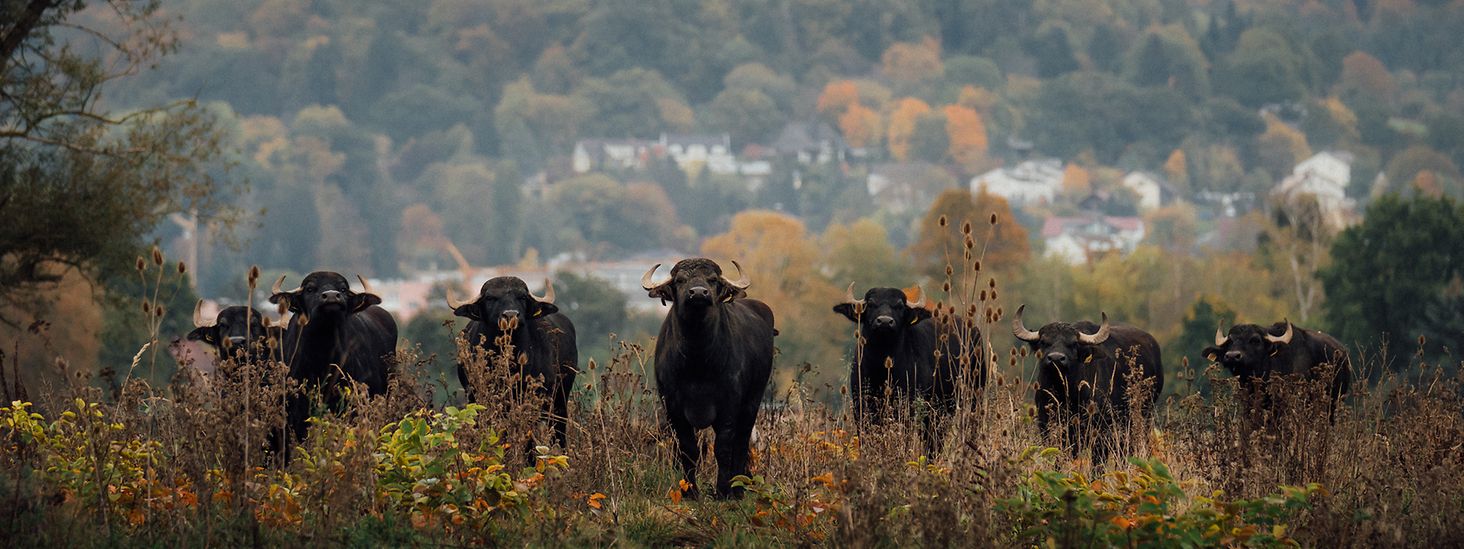After operational safety, protecting the environment and nature is a high priority for Deutsche Bahn – from planning and construction to the operation and maintenance of infrastructure. That is why DB is developing a net gain vision with regard to biodiversity, for example, and is working to improve the compatibility of railway operational requirements and nature conservation. The net gain approach pursues voluntary measures that go beyond compensation to increase biodiversity.
To counteract the loss of biodiversity, DB acts according to the principle of mitigation hierarchy: First, negative impacts on nature must be avoided as far as possible. Where interventions are unavoidable for operational and operational safety reasons, measures are taken to mitigate these impacts. Remaining impairments are compensated for by suitable compensatory measures – for example, by creating compensation and replacement areas recognized under nature conservation law.
DB's goal is to create sustainable added value for nature that goes beyond the legal requirements. To this end, the Group is continuously working on measures to protect nature and biodiversity.
Challenges with key figures and land structure
In contrast to climate protection, however, there is currently no uniform, generally recognized system of key figures for biodiversity. This is mainly due to the complexity and location-dependence of ecosystems, which vary greatly in their characteristics. This heterogeneity makes it difficult to integrate specific biodiversity targets into corporate management because, unlike climate protection, there is no central, comparable metric available.
For this reason, DB supports efforts to develop new standards for measuring biodiversity and is also working to improve data transparency. The aim is to lay the foundations for even more targeted and effective investment in the protection of biological diversity in the future.
Assessment using the biotope value method
The effectiveness of compensation measures and the assurance of full compensation for interventions in nature are assessed using the biotope value method. The legal basis for this is provided by the Federal Compensation Ordinance and the respective state compensation ordinances. Biotope value points, which quantify the ecological significance and condition of a biotope, serve as a measure. They help to assess the value of the performance and functionality of the ecosystem and the landscape in an integrative manner.
This procedure makes it possible to demonstrate that compensation and replacement measures create at least as many biotope value points as are lost through interventions. The compensation and replacement measures required by nature conservation law are controlled and monitored by the Federal Railway Authority. Deutsche Bahn also maintains regular contact with the relevant approval authorities and environmental organizations regarding its nature conservation activities.
Further nature conservation activities
Deutsche Bahn has been committed to preserving biodiversity in Germany for many years and in a variety of ways. Since 2009, the company has been cooperating with the Bergwaldprojekt e. V. association and, through numerous donations – including from travelers in the BahnBonus program and in DB on-board catering – has already planted over half a million trees, restoring more than 200 hectares of near-natural forest area.
In order to quickly and reliably identify protected species during construction projects, Deutsche Bahn, in collaboration with universities and colleges, trains special species detection dogs at its Species Mapping Competence Center. Before construction begins, the species detection dogs are deployed to inspect the construction site—a process known as species mapping. For example, they can reliably determine the location of lizard habitats even in winter when temperatures are below freezing.
And for more than 20 years, Fahrtziel Natur has been bringing people into nature by train. The cooperation between BUND, NABU, VCD, and DB is committed to ensuring that biosphere reserves, nature reserves, and national parks throughout Germany, Austria, and Switzerland can be visited in a sustainable manner.

